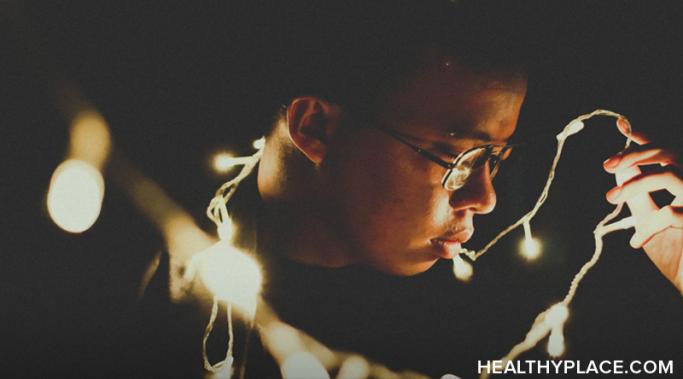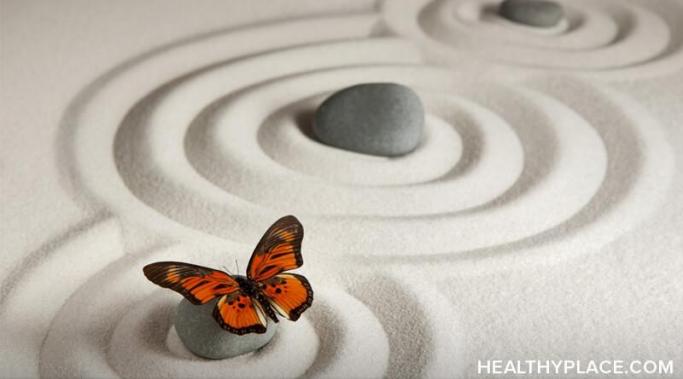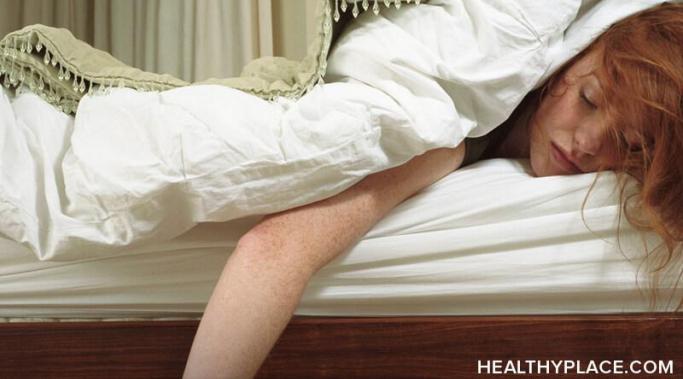I wouldn't say it's always a gift to have bipolar disorder, but I do believe it's a gift to receive a bipolar disorder diagnosis. A diagnosis can help you come to terms with the mental health disorder that you have and receive the right kind of support, such as therapy and medication. I have seen the power of a diagnosis in other people and myself. I suffered for years, not knowing why I felt so depressed with frequent suicidal thoughts. Once I received a diagnosis, I could then set up a plan to receive the most suitable support for me.
Video
Medication lapses at work can be detrimental to people with mental health issues. I have experienced a myriad of problems that came from a lapse in medication. These problems have included withdrawal symptoms, a resurgence of symptoms, the increased risk of relapse, and the risk of self-medication. There are many reasons why a person may have a lapse in medication in the workplace, but one that has really affected my mental health is insurance refusing to cover my medication.
My name is Ashley Miller, and I am excited to join the "Work and Bipolar or Depression" blog at HealthyPlace. I was diagnosed with bipolar disorder in my early twenties, and although it has affected my life in many ways, I am much more than this diagnosis.
We've all been there -- professional setbacks happen to everyone from time to time. You're passed over for a promotion, you mess up on an important project, or you're hit with a poor performance review that you didn't see coming. Maybe you've even been put on probation or, worse, terminated from your position. Or perhaps you have a patchy work history and feel doomed to repeat a perpetual cycle of hopping from dead-end job to dead-end job, never finding fulfilling work or achieving your full potential. And professional setbacks can be a big hit to one's self-esteem. In some ways, the stakes are higher when you work with bipolar disorder.
Let's be honest: job hunting is demoralizing if you're neurotypical. There are so many uncertainties that can wear you down when seeking a new position—and when you live with bipolar disorder, job hunting stressors can lead to changes in mood, which could result in a full-blown episode of depression or mania. It may be easier said than done, but a critical key to preventing mood episodes while you're on the prowl for a new job is learning ways to keep yourself motivated.
Ah, self-employment, it's a dream that many aspire to -- and that many succeed at with enough time, patience, and grit. For folks with bipolar, self-employment offers a number of advantages as well as challenges. If you struggle with work and bipolar disorder, self-employment may be an option worth exploring.
I think it's a safe bet to say that we are all ready for 2020 to be over, but perhaps not ready to start planning the new year with bipolar disorder. This year threw us a global pandemic, severe economic downturn, mass civil unrest, growing urgency around climate change, and perhaps the most volatile presidential election in US history. Then there were the thousands of personal losses so many of us faced (and are still facing): jobs, income, stability, housing, treasured time spent with family and friends, relationships strained to the breaking point due to political division, and loved ones whose lives were cut short by COVID-19. While the New Year is usually a time of hope and optimism, many folks -- especially those of us with mental health challenges like bipolar disorder -- are finding it hard to look ahead in the face of so much heartache and discouragement. Fortunately, planning for the new year with bipolar disorder doesn't have to take a tremendous amount of effort.
Most people look forward to taking time off work for the holidays (even if the holidays look a little different this year thanks to COVID-19). Folks who live and work with bipolar disorder are no exception. However, the work difficulties that come with bipolar can put a damper on what should be a time to relax and decompress.
I've always been a hypersensitive person, so it's important that I create a comfortable work environment to thrive with bipolar disorder. For example, I don't process sudden, loud noises very well, and too much background chatter can completely overwhelm me. Fluorescent lighting hurts my eyes, and I can't concentrate if I'm too cold or if my immediate environment isn't colorful and inviting.
Healthy sleep habits are an essential part of bipolar disorder management. They are also some of the most difficult habits to develop. Proper sleep habits are critical for physical and mental health, but the highs and lows that come with bipolar disorder can make it exceptionally difficult to wind down at the end of the day. Unhealthy sleep patterns can lead to a vicious cycle of mood instability that wreaks havoc in every facet of our lives -- work performance not least among them.









